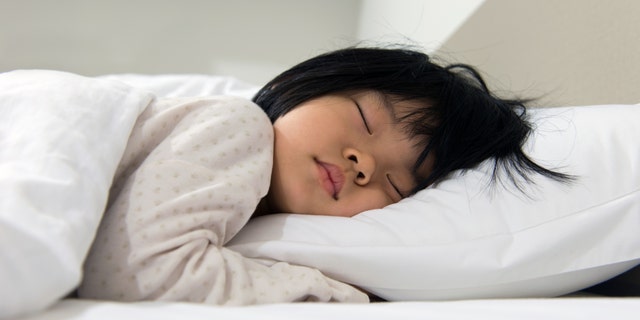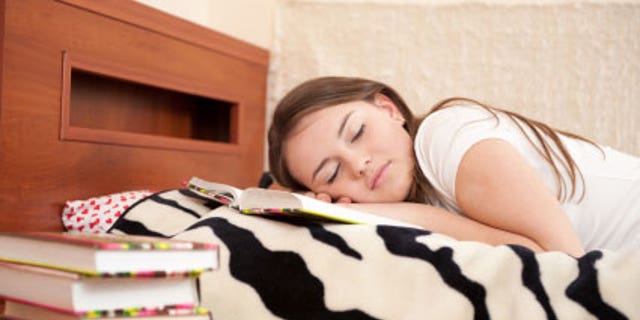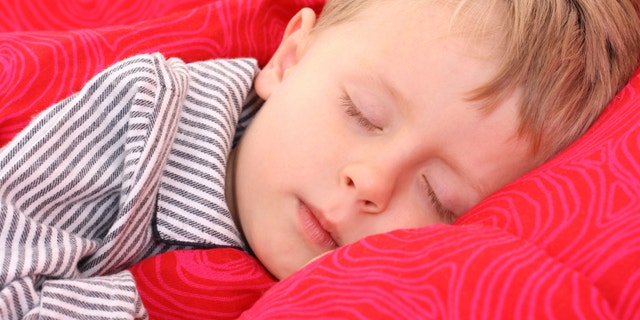NEWYou can now listen to Daily Post articles!
The American Academy of Sleep Medicine (AASM) is urging parents to consult a health care professional before starting their child on melatonin, according to a recent health advisory.
"While melatonin can be useful in treating certain sleep-wake disorders, like jet lag, there is much less evidence it can help healthy children or adults fall asleep faster," said Dr. M. Adeel Rishi, vice chair of the AASM Public Safety Committee and a pulmonology, sleep medicine and critical care specialist at Indiana University Health Physicians, in a press release.
"Instead of turning to melatonin, parents should work on encouraging their children to develop good sleep habits," he added.
SLEEP DISRUPTIONS MAY BE LINKED TO MENTAL HEALTH DISORDERS, NEW STUDY REVEALS
Those sleep habits include "setting a regular bedtime and wake time, having a bedtime routine and limiting screen time as bedtime approaches."
Our bodies naturally produce the hormone melatonin to regulate our sleep, per the health advisory.

A child is sound asleep. Instead of giving their children melatonin, parents should work on encouraging good sleep habits, said one specialist.
(Kenishirotie)
It is available as an over-the-counter medication and often advertised as a sleep aid — but there "is little evidence that taking it as a supplement is effective in treating insomnia in healthy children," according to the sleep academy, which is headquartered in Darien, Ill.
Melatonin has less oversight because it’s regulated by the Food and Drug Administration as a "dietary supplement" — and research has found that the melatonin content in supplements is not uniform, according to the press release.
MELATONIN POISONING IN KIDS SHARPLY INCREASED DURING CORONAVIRUS PANDEMIC, STUDY SAYS
One 2017 Journal of Clinical Sleep Medicine study examined the melatonin content in approximately 30 supplements. It found that over 71% of supplements did not meet the label claims.
The study found the most significant variability in melatonin content in chewable tablets, which is the form mostly likely used in children.
"One of the more surprising facts I share with my patients is that over-the-counter melatonin is not closely regulated."
This study "found that the actual content in these supplements was very inaccurate," said Dr. Baljinder S. Sidhu, a pulmonologist and sleep specialist who is the co-owner of Pacific Coast Critical Care Group in Southern California.
"While this may not be a big deal for adults, this could have a significant impact on small children," he said.

Parents should discuss the topic of melatonin with a health care professional before giving the medication to their children, according to the American Academy of Sleep Medicine.
(iStock)
He advises the use of melatonin with caution.
"One of the more surprising facts I share with my patients is that over-the-counter melatonin is not closely regulated," Sidhu added.
Pediatric melatonin ingestions reported annually to U.S. poison control centers increased by 530% during 2012–2021, according to the Centers for Disease Control and Prevention (CDC).
WANT TO BE A MORNING PERSON? THESE 6 EXPERT TIPS MAY HELP GET YOU THERE
"The availability of melatonin as gummies or chewable tablets makes it more tempting to give to children and more likely for them to overdose," added Rishi in the press release.
"Often, behavioral interventions other than medication are successful in addressing insomnia in children," he added.
The American Academy of Sleep Medicine shares the following important tips.
1. Melatonin should be kept out of reach of children.
2. Parents should discuss the topic with a health care professional before starting the medication.
3. Parents need to know that "many sleep problems can be better managed with a change in schedules, habits or behaviors rather than taking melatonin."

"Insomnia is not uncommon in children as they develop after the age of 2," said one physician.
(iStock)
If parents are going to give their child melatonin, the sleep academy recommends verifying that the product has the USP Verified Mark for safety reasons.
"Melatonin is never a first-line treatment in children," Sidhu told Daily Post Digital.
CLICK HERE TO SIGN UP FOR OUR LIFESTYLE NEWSLETTER
"Insomnia is not uncommon in children as they develop after the age of 2," he added.
"This resistance to bedtime can be difficult to manage and even has a diagnosis we call ‘limit-setting insomnia,’ which can be generally managed with bedtime routines."
He reminds people that while melatonin can be used for certain sleep disorders, such as ADHD and other chronic health conditions that affect sleep as well as autism, it should always be recommended and managed by a physician first.
Health


